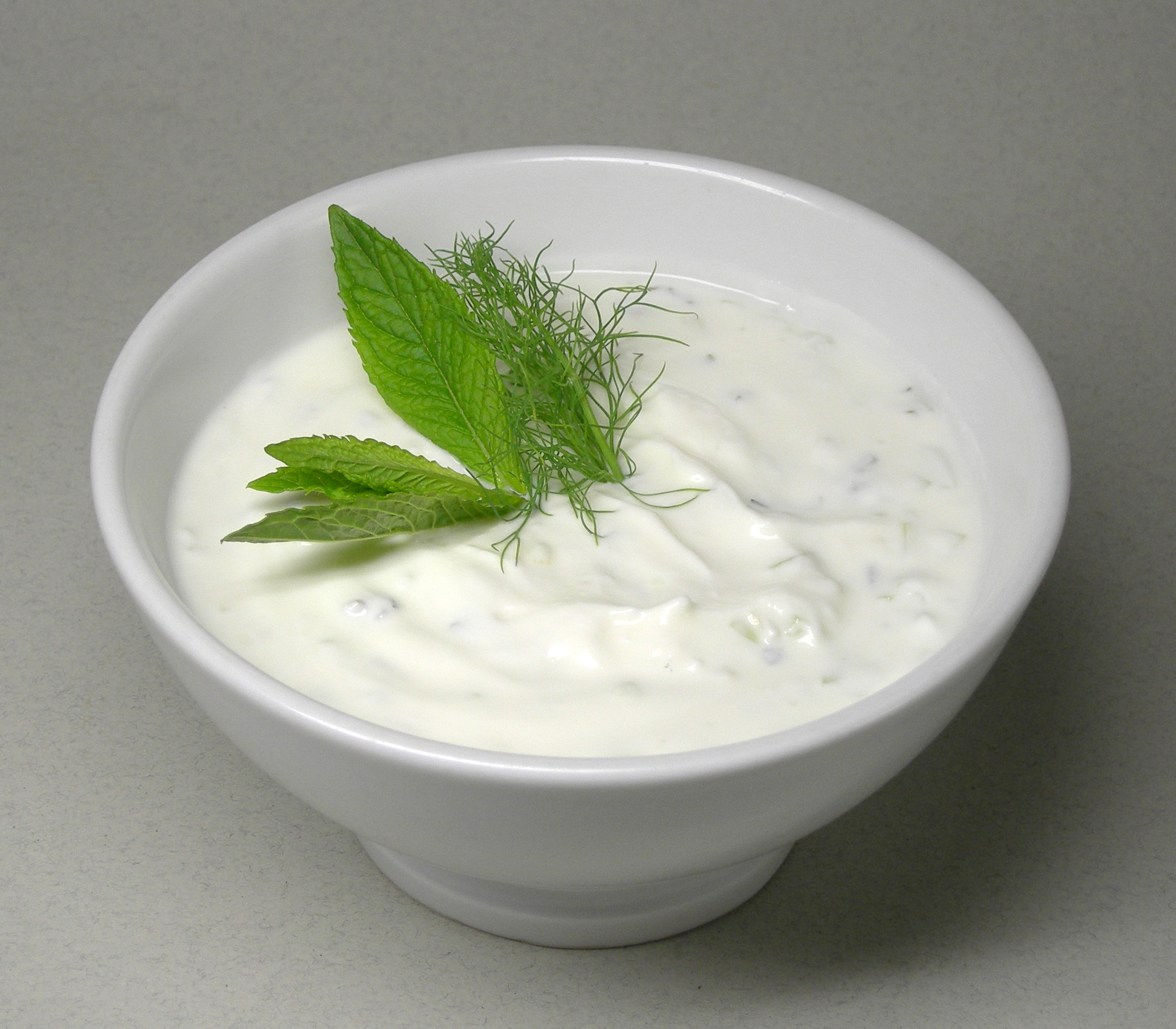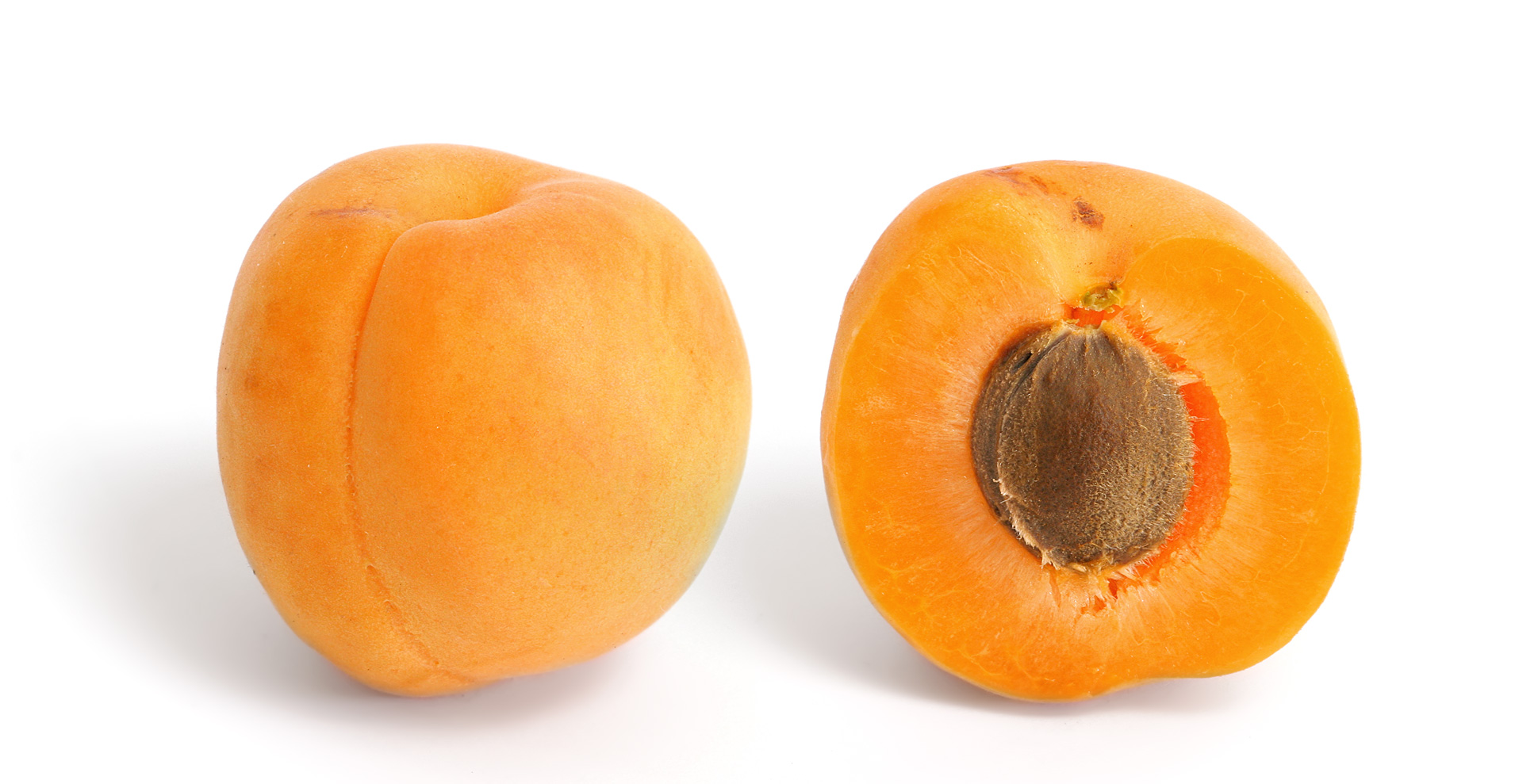Yogurt vs. Apricot
Nutrition comparison of Yogurt and Apricot
Ever wonder how your favorite foods stack up against each other in terms of nutrition?
We compared the nutritional contents of
yogurt
versus
apricot
(100g each)
below using 2020 USDA and NIH data[1].
For a quick recap of significant nutrients and differences in yogurt and apricot:
- Apricot has 76.6 times less saturated fat than yogurt.
- Apricot has signficantly more Vitamin C than yogurt.
- Apricot has signficantly more dietary fiber than yogurt.
- Apricot is a great source of potassium.
- Yogurt has 58% less carbohydrates than apricot.
- Yogurt has more riboflavin and Vitamin B12, however, apricot contains more niacin.
- Yogurt is an excellent source of calcium.
USDA sources for nutritional information: Yogurt (Yogurt, plain, whole milk) and Apricot (Apricots, raw) . Have a correction or suggestions? Shoot us an email.
Calories and Carbs
calories
Yogurt and apricot contain similar amounts of calories - yogurt has 61 calories per 100 grams and apricot has 48 calories.
For macronutrient ratios, yogurt is heavier in protein, much lighter in carbs and much heavier in fat compared to apricot per calorie. Yogurt has a macronutrient ratio of 22:30:48 and for apricot, 10:83:7 for protein, carbohydrates and fat from calories.
Macro Ratios from Calories:
| Yogurt | Apricot | |
|---|---|---|
| Protein | 22% | 10% |
| Carbohydrates | 30% | 83% |
| Fat | 48% | 7% |
| Alcohol | ~ | ~ |
carbohydrates
Yogurt has 58% less carbohydrates than apricot - yogurt has 4.7g of total carbs per 100 grams and apricot has 11.1g of carbohydrates.
The carbs in apricot are made of 82% sugar and 18% dietary fiber, whereas the carbs in yogurt comprise of 100% sugar.
dietary fiber
Apricot has signficantly more dietary fiber than yogurt - apricot has 2g of dietary fiber per 100 grams and yogurt does not contain significant amounts.
sugar
Yogurt has 50% less sugar than apricot - yogurt has 4.7g of sugar per 100 grams and apricot has 9.2g of sugar.
Protein
protein
Yogurt has 148% more protein than apricot - yogurt has 3.5g of protein per 100 grams and apricot has 1.4g of protein.
Fat
saturated fat
Apricot has 76.6 times less saturated fat than yogurt - yogurt has 2.1g of saturated fat per 100 grams and apricot has 0.03g of saturated fat.
cholesterol
Apricot has less cholesterol than yogurt - yogurt has 13mg of cholesterol per 100 grams and apricot does not contain significant amounts.
Vitamins
Vitamin C
Apricot has signficantly more Vitamin C than yogurt - yogurt has 0.5mg of Vitamin C per 100 grams and apricot has 10mg of Vitamin C.
Vitamin A
Apricot has 256% more Vitamin A than yogurt - yogurt has 27ug of Vitamin A per 100 grams and apricot has 96ug of Vitamin A.
Vitamin D
Yogurt and apricot contain similar amounts of Vitamin D - yogurt has 2iu of Vitamin D per 100 grams and apricot does not contain significant amounts.
Vitamin E
Yogurt and apricot contain similar amounts of Vitamin E - yogurt has 0.06mg of Vitamin E per 100 grams and apricot has 0.89mg of Vitamin E.
Vitamin K
Yogurt and apricot contain similar amounts of Vitamin K - yogurt has 0.2ug of Vitamin K per 100 grams and apricot has 3.3ug of Vitamin K.
The B Vitamins
Yogurt has more riboflavin and Vitamin B12, however, apricot contains more niacin. Both yogurt and apricot contain significant amounts of thiamin, pantothenic acid, Vitamin B6 and folate.
| Yogurt | Apricot | |
|---|---|---|
| Thiamin | 0.029 MG | 0.03 MG |
| Riboflavin | 0.142 MG | 0.04 MG |
| Niacin | 0.075 MG | 0.6 MG |
| Pantothenic acid | 0.389 MG | 0.24 MG |
| Vitamin B6 | 0.032 MG | 0.054 MG |
| Folate | 7 UG | 9 UG |
| Vitamin B12 | 0.37 UG | ~ |
Minerals
calcium
Yogurt is an excellent source of calcium and it has 831% more calcium than apricot - yogurt has 121mg of calcium per 100 grams and apricot has 13mg of calcium.
iron
Yogurt and apricot contain similar amounts of iron - yogurt has 0.05mg of iron per 100 grams and apricot has 0.39mg of iron.
potassium
Apricot is a great source of potassium and it has 67% more potassium than yogurt - yogurt has 155mg of potassium per 100 grams and apricot has 259mg of potassium.
Antioxidants and Phytonutrients
carotenoids
Carotenoids are micronutrients commonly found in plants and some animal products. An example is beta-carotene, the notable carotenoid which is a popular source of Vitamin A.[4][5]
For specific types of carotenoids,
| Yogurt | Apricot | |
|---|---|---|
| beta-carotene | 5 UG | 1094 UG |
| alpha-carotene | ~ | 19 UG |
| lutein + zeaxanthin | ~ | 89 UG |
Omega-3 and Omega-6
omega 6s
Comparing omega-6 fatty acids, both yogurt and apricot contain significant amounts of linoleic acid.
| Yogurt | Apricot | |
|---|---|---|
| linoleic acid | 0.065 G | 0.077 G |
| Total | 0.065 G | 0.077 G |
Customize your serving size
The comparison below is by weight, but sometimes 100g isn't that intuitive of a measurement for food. View a custom portion comparison (e.g. cups, oz, package).
You can try adding or subtracting the amount of either Yogurt or Apricot .
Yogurt g
()
|
Daily Values (%) |
Apricot g
()
|
|||||
|---|---|---|---|---|---|---|---|
| KCAL % |
|
5% | calories | 5% |
|
KCAL % | |
| G % |
|
5% | carbohydrates | 5% |
|
G % | |
| G % |
|
5% | dietary fiber | 5% |
|
G % | |
| G | 5% | sugar | 5% | G | |||
| G % |
|
5% | total fat | 5% |
|
G % | |
| G % |
|
5% | saturated fat | 5% |
|
G % | |
| G | 5% | monounsaturated fat | 5% | G | |||
| G | 5% | polyunsaturated fat | 5% | G | |||
| G | 5% | trans fat | 5% | G | |||
| MG | 5% | cholesterol | 5% | MG | |||
| MG % |
|
5% | sodium | 5% |
|
MG % | |
| 5% | Vitamins and Minerals | 5% | |||||
| UG % |
|
5% | Vitamin A | 5% |
|
UG % | |
| MG % |
|
5% | Vitamin C | 5% |
|
MG % | |
| IU % |
|
5% | Vitamin D | 5% |
|
IU % | |
| MG % |
|
5% | calcium | 5% |
|
MG % | |
| MG % |
|
5% | iron | 5% |
|
MG % | |
| MG % |
|
5% | magnesium | 5% |
|
MG % | |
| MG % |
|
5% | potassium | 5% |
|
MG % | |
| MG % |
|
5% | thiamin (Vit B1) | 5% |
|
MG % | |
| MG % |
|
5% | riboflavin (Vit B2) | 5% |
|
MG % | |
| MG % |
|
5% | niacin (Vit B3) | 5% |
|
MG % | |
| MG % |
|
5% | Vitamin B6 | 5% |
|
MG % | |
| MG % |
|
5% | pantothenic acid (Vit B5) | 5% |
|
MG % | |
| UG % |
|
5% | folate (Vit B9) | 5% |
|
UG % | |
| UG % |
|
5% | Vitamin B12 | 5% |
|
UG % | |
| MG % |
|
5% | Vitamin E | 5% |
|
MG % | |
| UG % |
|
5% | Vitamin K | 5% |
|
UG % | |
| G % |
|
5% | protein | 5% |
|
G % | |
| UG % |
|
5% | biotin (Vit B7) | 5% |
|
UG % | |
| MG % |
|
5% | choline | 5% |
|
MG % | |
| MG % |
|
5% | chlorine | 5% |
|
MG % | |
| UG % |
|
5% | chromium | 5% |
|
UG % | |
| MG % |
|
5% | copper | 5% |
|
MG % | |
| UG % |
|
5% | fluoride | 5% |
|
UG % | |
| UG % |
|
5% | iodine | 5% |
|
UG % | |
| MG % |
|
5% | manganese | 5% |
|
MG % | |
| UG % |
|
5% | molybdenum | 5% |
|
UG % | |
| MG % |
|
5% | phosphorus | 5% |
|
MG % | |
| UG % |
|
5% | selenium | 5% |
|
UG % | |
| MG % |
|
5% | zinc | 5% |
|
MG % | |
| G | 5% | Water | 5% | G | |||
| G | 5% | Starch | 5% | G | |||
| G | 5% | Alcohol | 5% | G | |||
FAQ
Does yogurt or apricot contain more calories in 100 grams?Yogurt and apricot contain similar amounts of calories - yogurt has 61 calories in 100g and apricot has 48 calories.
Does yogurt or apricot have more carbohydrates?
By weight, yogurt has 60% fewer carbohydrates than apricot - yogurt has 4.7g of carbs for 100g and apricot has 11.1g of carbohydrates. the carbs in apricot are made of 80% sugar and 20% dietary fiber, whereas the carbs in yogurt comprise of 100% sugar.
Does yogurt or apricot contain more calcium?
Yogurt is a rich source of calcium and it has 830% more calcium than apricot - yogurt has 121mg of calcium in 100 grams and apricot has 13mg of calcium.

